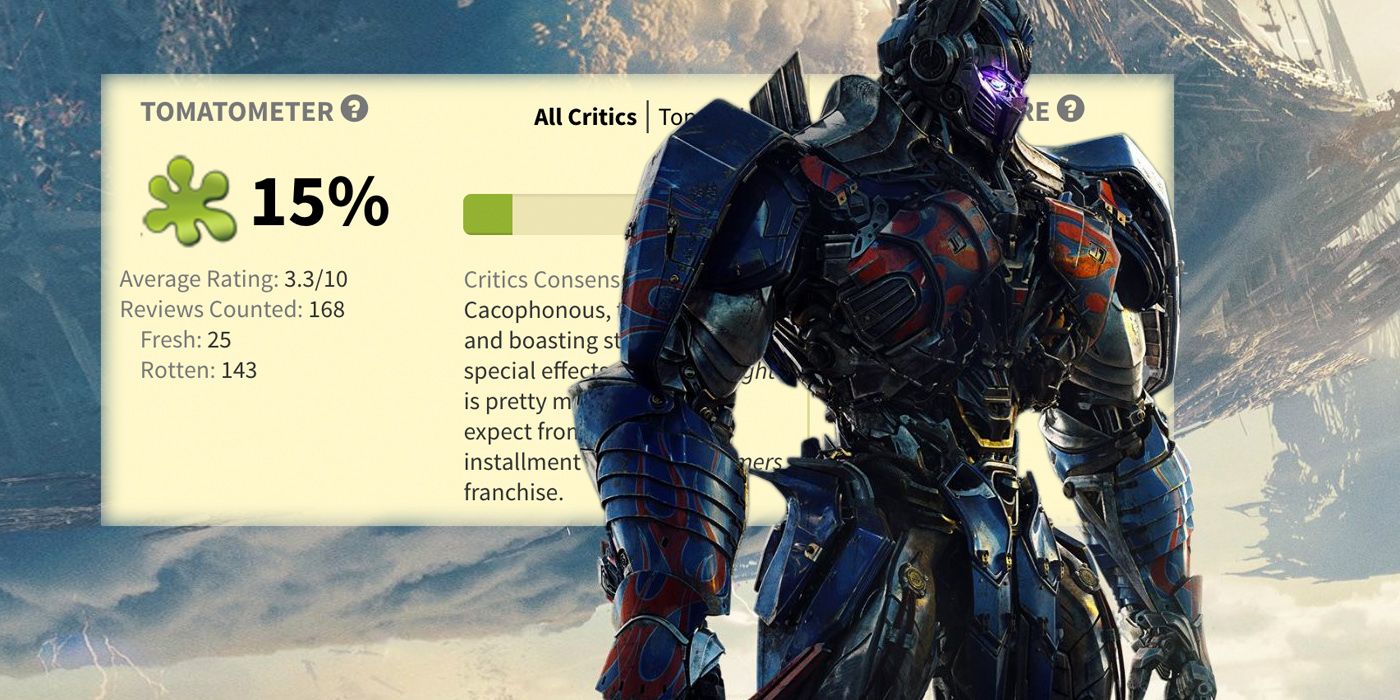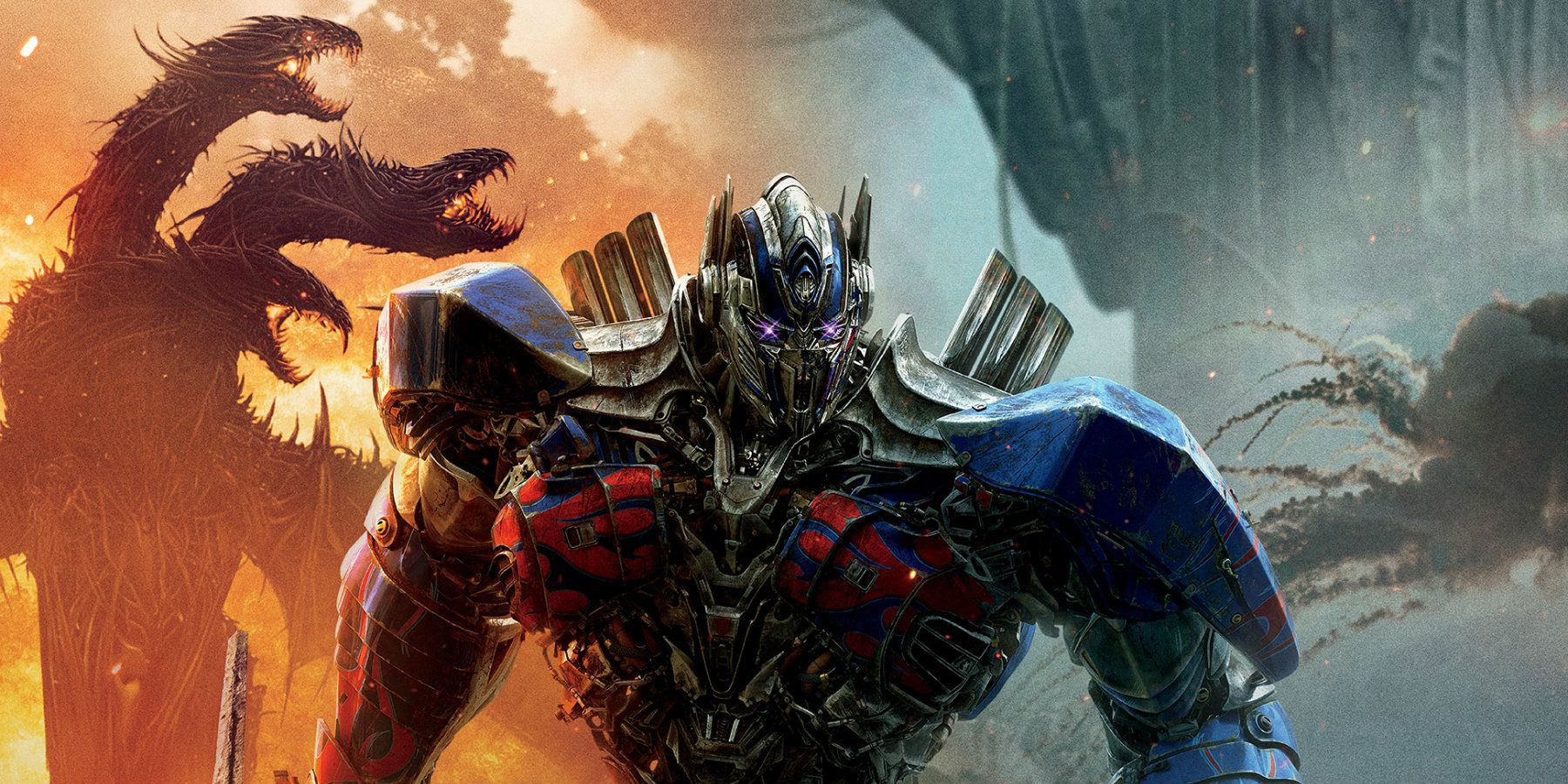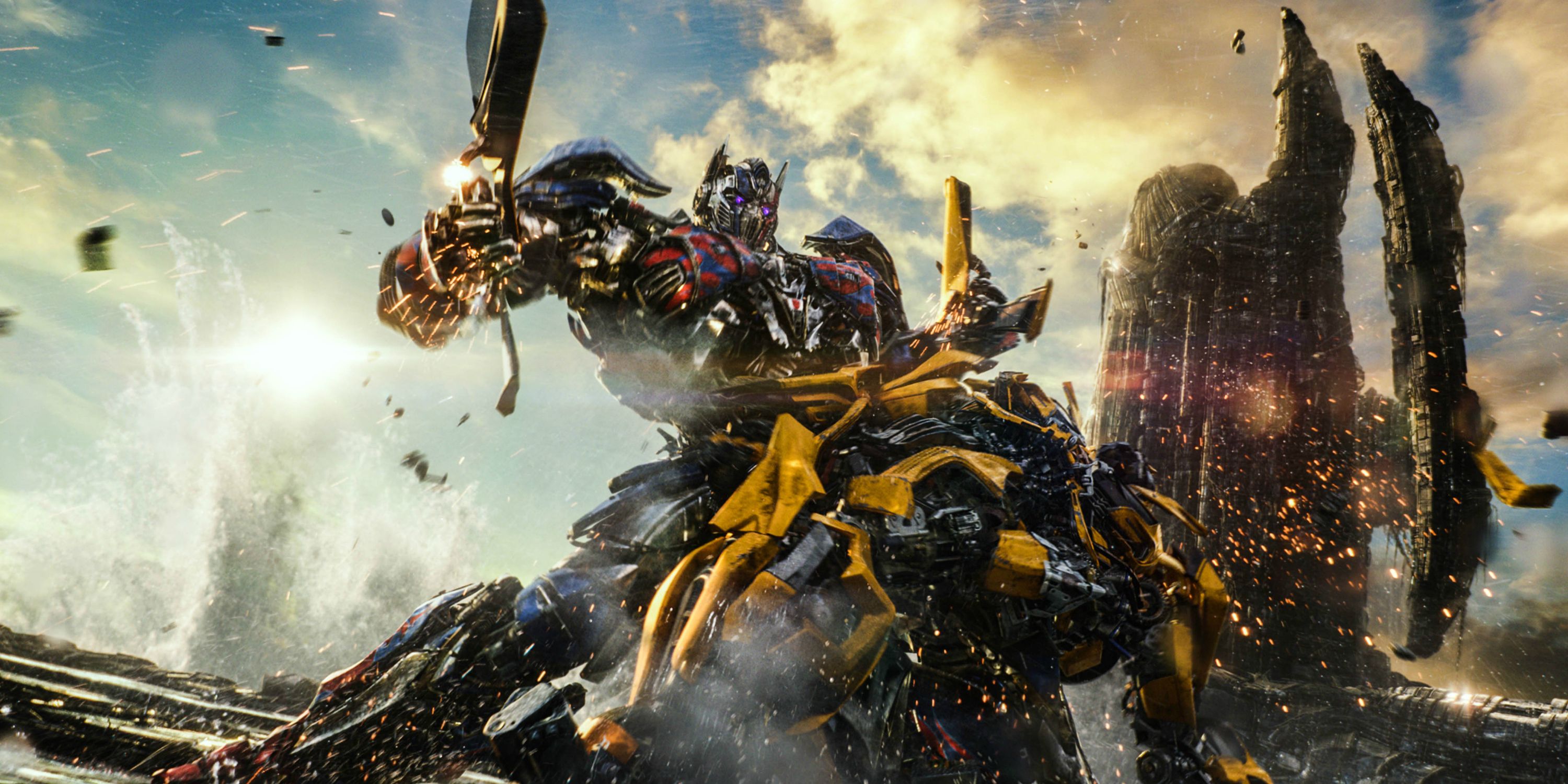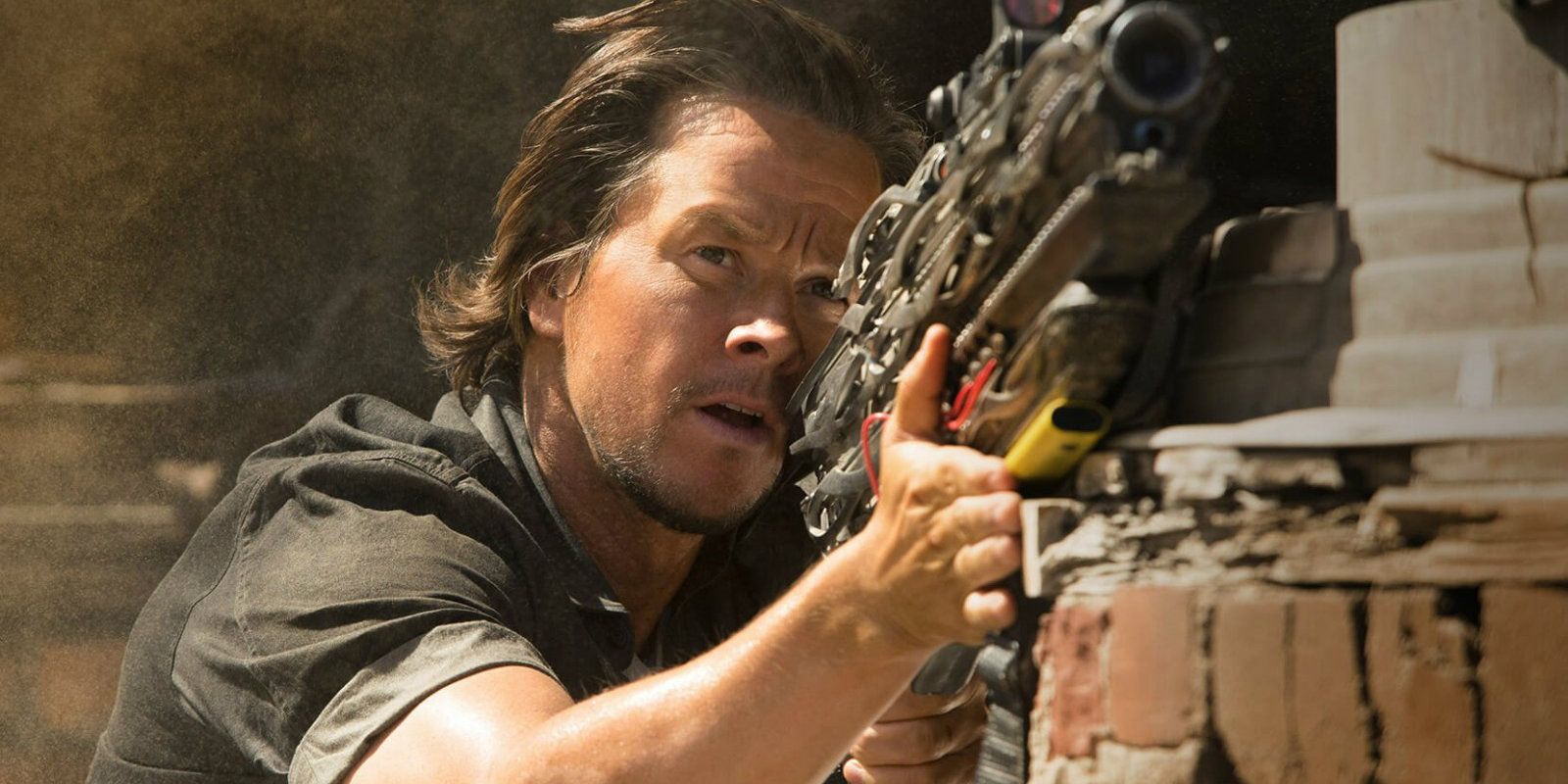The Transformers: The Last Knight reviews are typically bad, but are they missing something? Of course, nobody was really surprised when the fifth entry in Michael Bay's explosive military fetishism masquerading as a toy movie ended up being savaged by critics - it currently sits on 15% on Rotten Tomatoes, a new low.
Indeed, if anything the vitriol was more intense this time around. This is the fifth movie and third Bay's claimed to be is his last, so the critical body seemed keen to finally decree enough was enough. The Last Knight was the final nail in an expensive coffin he's been building for the past ten years, exemplified by the hyperbolic reactions. The peak of this was Red Letter Media, who humorously ran a string of episodes in its various review series that saw them repeatedly fail to muster the interest to even view the film, and everyone else who did wasn't shy about them being right to not waste their time. And what else do you expect when this is more of the very poor same?
Except that isn't what The Last Knight is. OK, so the director's trademark Bayhem remains and thus the film is lumbered with all the same fundamental issues (for more on this, check out Lindsay Ellis' excellent unfolding series exploring Film Theory through the series) but this wasn't just Bay playing in his sandbox alone.
The Last Knight is the first movie to come out since Paramount decided to turn the robots in disguise into a shared universe and assembled an impressive writer's room to do so. The real results of this will be felt when Bumblebee arrives next year, but the film currently in theaters bears all the hallmarks of a shift. It has a general drive towards the future (there's the franchise's first post-credits scene) and boasts an attempt to expand the mythos by connecting the disparate threads from the previous entries into a coherent continuity. There is also a marked genre shift, with the frat boy comedy of the Shia LaBeouf era fully ditched for something more out-and-out sci-fi. That this has been done alone is worthy of comment, but beyond that it leads to something very curious.
Transformers: The Last Knight Is A Future Camp Classic
This franchise shift while remaining in the same broad style leads to two things. The first is the story is completely and utterly bonkers. Every movie in the series has been pretty ridiculous, sure, but the embracing of the out-there sci-fi elements leads to something much more extreme. In the film we learn Merlin (Stanley Tucci) go his magic from Transformers; everyone from Shakespeare to Shia LaBeouf has been part of secret organization The Order of the Witwiccans; a psycho watch killed Hitler; Earth is Unicron; and Mark Wahlberg is the Last Knight, pulling out Excalibur against Optimus Prime. And on that point, Prime's turn back from being randomly evil comes from the totally unprecedented use of Bumblebee's laughable voice, a friend-fight resolution that makes Batman v Superman's Martha look nuanced. There's also some heightened reality moments, like Megatron's goons being introduced with bizarre Suicide Squad-esque intros and Anthony Hopkins screaming at anybody he can. Bonkers really is the word.
The other thing is that all of this is delivered with an immense self-seriousness. The comedy elements that make Bay typically so repulsive are there to occasionally undercut it but overall the story group has clearly respected the decades of Transformers mythology in a manner similar to most non-movie material from the franchise.
Each of those two aspects alone would no doubt be grating, but together it creates an unexpected melding of tones that turns Transformers from gung-ho bro action into accidental camp; the film is simultaneously so silly and so proper it becomes perversely enjoyable. Now there's a big debate to what degree this is intentional - are we laughing at or with Bay - but there's enough tongue-in-cheek irreverence inherent to the director's style to suggest we're not just dealing with The Room of blockbusters. And even if it is, this quality all-but ensures in years to come the film becomes a cult classic. Just give it ten years.
Regardless of if you appreciate the schlock, there's no avoiding that the impact of the new writer's room and the silliness it begets is at the core of the movie, and yet is a major thing overlooked in all those aforementioned reviews. Why?
Next Page: [valnet-url-page page=2 paginated=0 text='Transformers%205%27s%20Critical%20Reaction%20Analyzed']
The Critical Reaction Analyzed
What we're here to do today isn't just raise the peculiarity with the new Transformers - although that it has a reading that isn't immediately objectionable is remarkable - but to explore why this has for the most part been ignored by the critical body. Yes, most reactions to the film tend to acknowledge how over the top things have gotten but have taken it all purely earnestly, which in turns sees it roundly treated as a flaw. And it may be for some, but the analysis is still very one track.
This will be in part because the Transformers narrative dictated The Last Knight to be terrible. As we've discussed recently with the likes of Wonder Woman and are seeing challenged with Star Wars and Han Solo, in the modern internet age movie franchises have their own real world narratives and expectations. And, like the Joker said in The Dark Knight, nobody panics when things go according to plan; conversely, to diverge from this track takes a major shift. Now this isn't to say anybody's opinions are just reactionary or innately bias (another topic well-covered care of the DCEU), rather that expectations and pack mentality can alter how critical or forgiving people will be.
Let's apply this thinking to the franchise at hand. Funnily enough, Transformers' position as an all-hated behemoth took a while to emerge. The first film was hardly called a masterpiece but some of the early reviews make for some perplexing reading; there's a lot of praise for the visceral thrill while pointing out narrative shortcomings that feels off-base ten years on, essentially a more verbose version of the "leave your brain at the door" excuse now used by audiences to defend the film. Even Revenge of the Fallen, one of the worst films of all time, still managed to get some 4* reviews on the residual "action fun" angle (although most publications have since deleted these to save face). Simply put, it took time for the realization the films and Bay were quite as bad as they are and for the films to reflect that; but by now it's a pre-written fact.
As we approached The Last Knight, the "enough is enough" idea for Transformers couldn't have been more in vogue and it would take something out-and-out great to shake it. The film is not that - again, every problem with Bayhem is present and correct, and incoherence is really upped - and so there's less appreciation; people went in expecting a terrible movie, weren't challenged enough to think otherwise and thus concluded it was terrible.
That's totally fine - there are some wonderfully presented reviews of the film out there - but the calls of "more of the same" and the conclusions being drawn from that feel like they're there more for the sake of the built-up narrative than they are actual criticism of the film itself.
Understanding Tone And Context
This all raises an interesting debate of tone in appreciating film. You don't measure a comedy against a dramatic scale - not laughing during Schindler's List is hardly a criticism, while a lack of deep-set empathy in Anchorman is hardly a knock - and it feels like the scale used for Transformers: The Last Knight was skewed. Now this line of thinking is often used in obtuse terms; defenders will claim a Transformers film is never going to be Oscar worthy and shouldn't be put against high standards. That is a bit different; just because you're measuring something on another scale doesn't mean there shouldn't still be some level of quality control.
But it's hard to measure Transformers 5 against Bay's filmography, the rest of the series or whichever genre you put it in without finding it somehow unique. Whether or not you think the changes are beneficial or not is another matter, but an appreciation of that feels necessary; it's a tonally different experience, something that it doesn't feel like it's being conveyed in the dialogue around the film.
We don't want to be the ones just aimlessly defending Transformers but there's certainly some things being overlooked here. Give the fifth film a chance with an open mind and you may find something weird and - even if just a little bit - wonderful.




